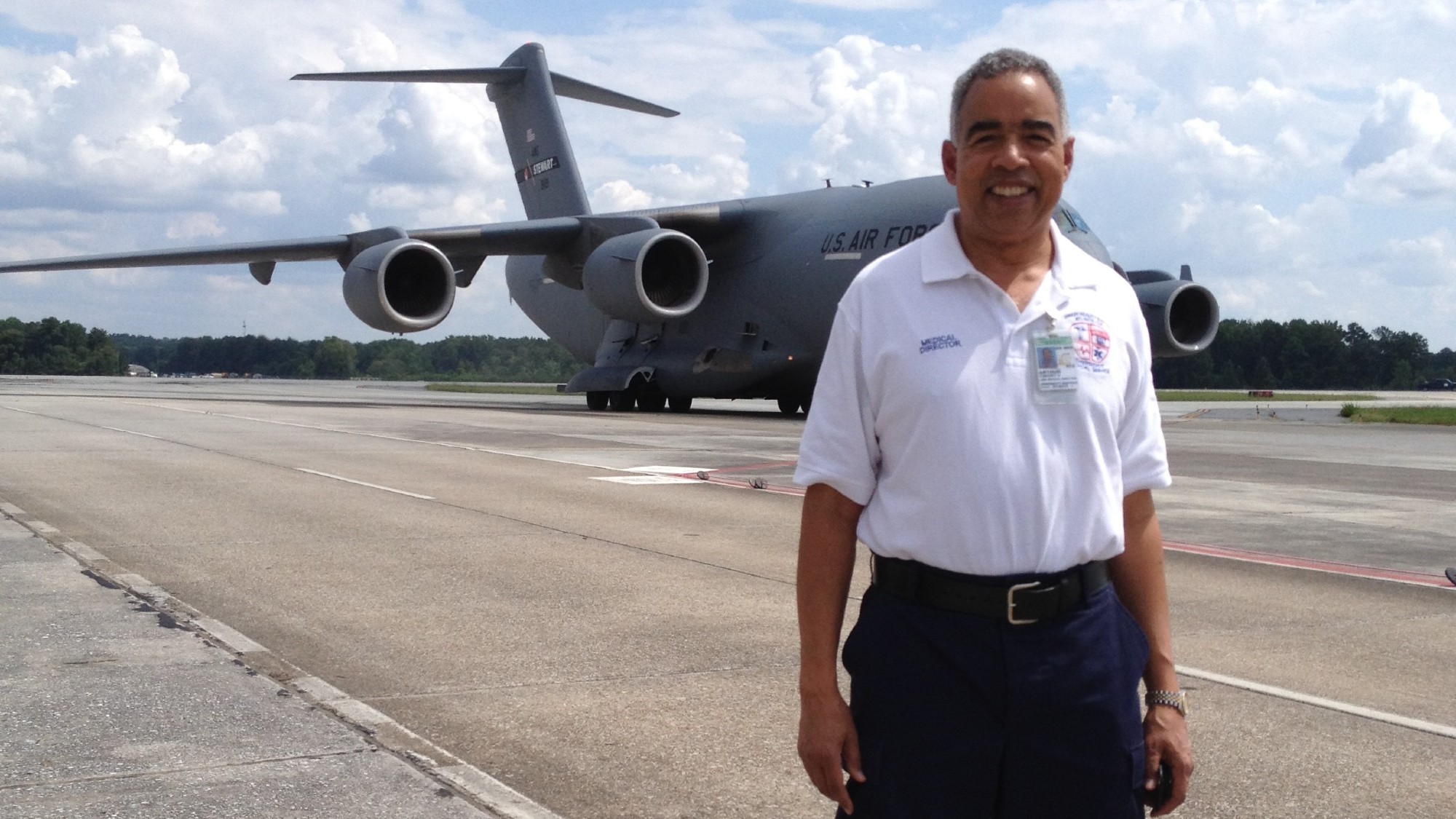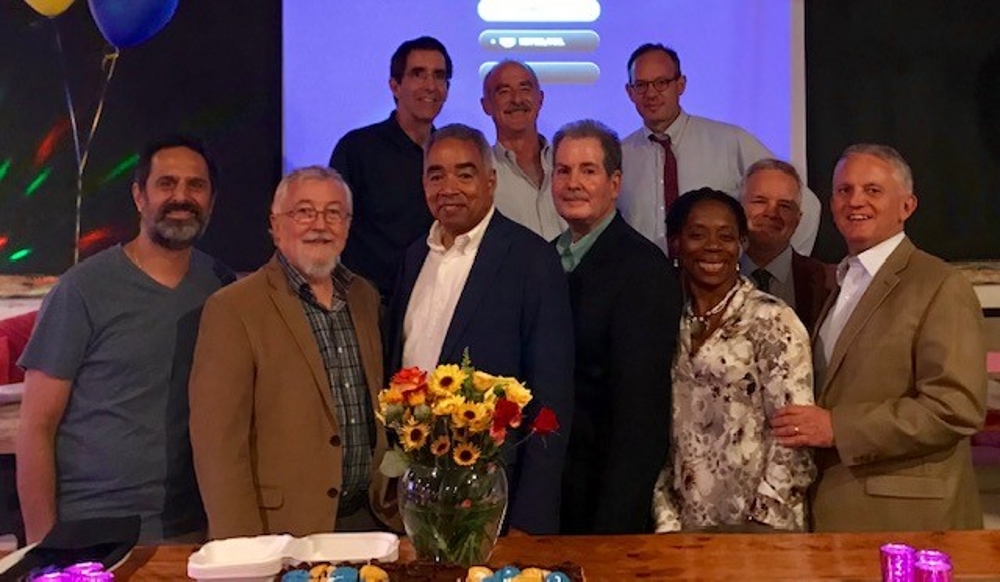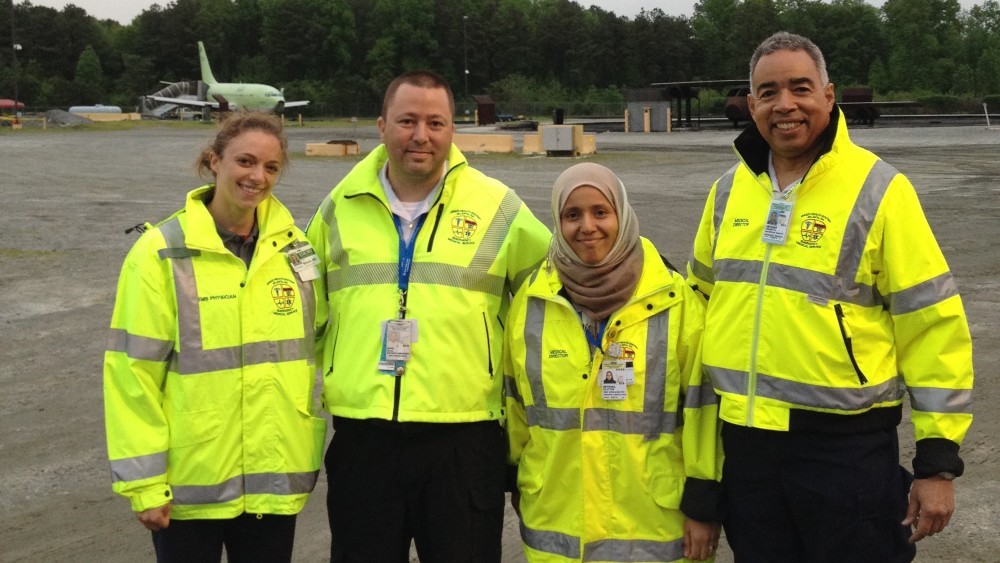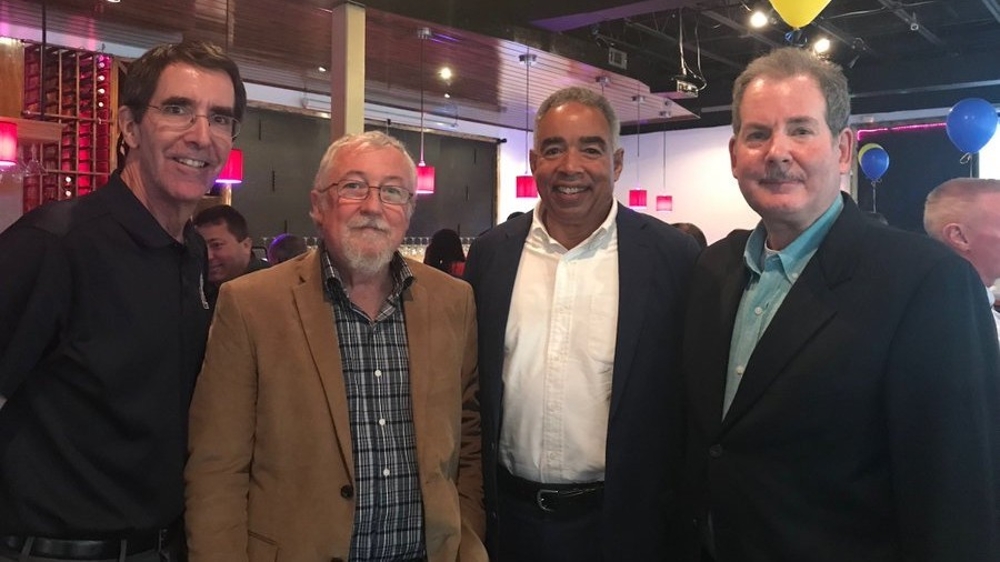After 26 years with the Department of Emergency Medicine, September 16 marked the retirement of Dr. Arthur Yancey II from his roles in EMS medical direction and active Emergency Medicine practice, as well as his position as Associate Professor of Emergency Medicine.
“It has been an incredible honor to know and work alongside Dr. Arthur Yancey,” said David Wright, chair of the Emory Department of Emergency Medicine. “Arthur epitomized the consummate professional, a true gentleman, and a role model for all. He taught us – through is actions with patients – unbridled compassion and humility, regardless of a patient’s station in life. He provided leadership and innovation to Atlanta’s emergency medical system during a time of unprecedented growth. He gave his all to emergency medicine, Grady, the EMS community, and Emory – evidenced by him receiving the highest School of Medicine Award for Lifetime Service and Leadership. We wish him well in his retirement and are grateful for all that he has done for our program and patients.”
Dr. Yancey received both his Bachelor of Arts and his Medical Degree from the University of Michigan, Ann Arbor, and received his Master of Public Health degree from the Johns Hopkins University. After completing a residency in general surgery from the Howard University Hospital, Washington, DC, serving the United States Army at the Institute for Surgical Research at Brooke Army Burn Unit, Fort Sam Houston, Texas, and later serving as a staff trauma surgeon and emergency physician at premier institutions in the national capital region, including the Johns Hopkins Hospital, Howard University Hospital, Washington Hospital Center and DC General. Dr. Yancey was recruited to join the Emory University School of Medicine faculty in 1993 as a practicing emergency physician at Grady Memorial Hospital, an EMS medical director for Fulton County, and Deputy Director for Emergency Medical Services in the Fulton County Department of Health and Wellness. Since joining Grady EMS, he has provided medical direction for its EMD, Special Event, Specialty Care (interfacility) Transport, Crisis (psychiatric) Intervention, and Mobile Integrated Health (MIH) programs. He collaborated in the planning that resulted in the inauguration of Atlanta’s Grady-Emory Mobile Stroke Unit.
He has been dedicated to improving health in our community. His previous service includes membership on the Emergency Medical Services and Transportation Subcommittee of The Atlanta Committee for the Olympic Games serving as its co-chair for two years. He has chaired the National Association of EMS Physicians Public Health Committee. He has served on the editorial board of Prehospital Emergency Care. He has consulted for The South African Department of Public Health on matters pertaining to EMS, from the regionalization of services to workforce protection from contagious disease, planning for the 2010 World Cup Games, and organization of maternal interfacility transport.
For Dr. Yancey, this is a bittersweet moment. While he is intimidated by the prospect of ending his professional journey in emergency medicine—which he said has been “as fulfilling as any which [he] could have envisioned—he is looking forward to the chance to reflect upon the blessing of his experiences.
“To work with, teach, and learn from each of our distinguished faculty and resident colleagues, has been the privilege of a lifetime,” Dr. Yancey said. “Our distinguished outreach of emergency medical care into local, state, national, and international communities, reflects our internal diversification across sexual orientation, culture, nationality, race, and ethnicity, for which I am exceedingly appreciative and proud.”
With his departure, Dr. Yancey is leaving behind a legacy of practices that he has pioneered, implemented and enhanced to better serve the community—and as Ricardo Martinez, MD added, small but lasing tidbits of advice.
“One of the great things about the medical training model as an apprenticeship is that one learns constantly from colleagues all around you,” Dr. Martinez said, “and words of wisdom become part one’s lexicon, which are then passed on to the next generation. I have a whole list of ‘Yanceyisms’ that I continue to use because they are pearls of wisdom for the ages.”
Dr. Yancey is incredibly grateful for all the Emergency Medicine staff, who he says have been immeasurably crucial to, and superbly supportive of, his work here.
“May all of your paths continue to consist of reaching past your already distinguished grasp,” Yancey said, “with my profound gratitude for including me in the efforts exerted by all of you.”
Dr. Yancey’s calm and compassionate grace will be missed by all in the Department. We wish him the best of luck in this next chapter of his life.





